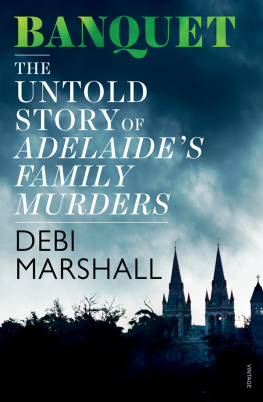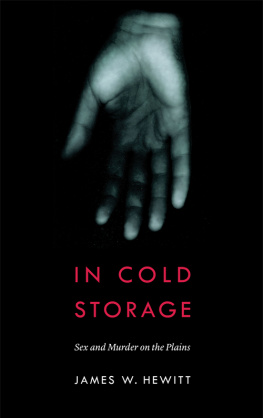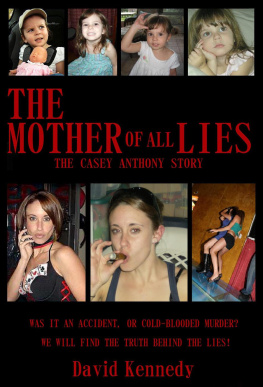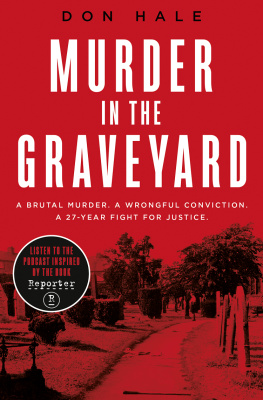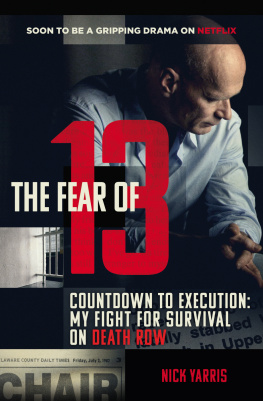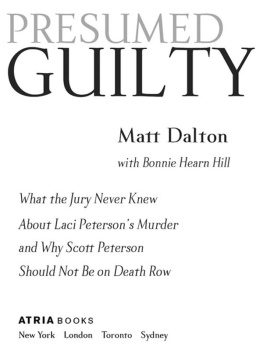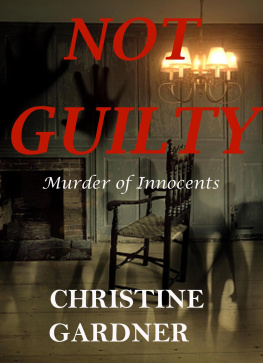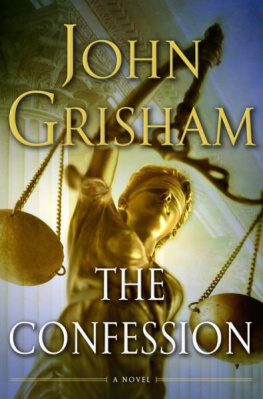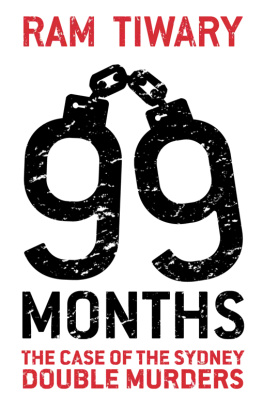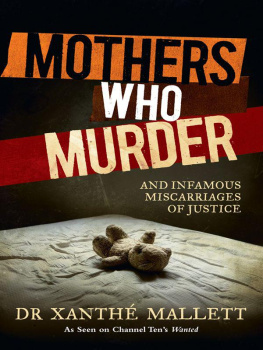Debi Marshall is a freelance journalist and author based in Tasmania. She writes extensively for national magazines, specialising in crime, and is an experienced radio and television reporter. A qualified teacher (BA, Dip Ed), Debi also teaches Media and English at college and university.
Also by Debi Marshall
Her Fathers Daughter: The Bonnie Henderson Story
Lang Hancock
All rights reserved. No part of this book may be reproduced or transmitted by any person or entity, including internet search engines or retailers, in any form or by any means, electronic or mechanical, including printing, photocopying (except under the statutory exceptions provisions of the Australian Copyright Act 1968 ), recording, scanning or by any information storage and retrieval system without the prior written permission of Random House Australia. Any unauthorised distribution or use of this text may be a direct infringement of the authors and publishers rights and those responsible may be liable in law accordingly.
Justice in Jeopardy
ePub ISBN 9781742745558
Random House Australia Pty Ltd
Level 3, 100 Pacific Highway, North Sydney, NSW 2060
http://www.randomhouse.com.au
Sydney New York Toronto
London Auckland Johannesburg
First published by Random House Australia 2005
Copyright Debi Marshall 2005
All rights reserved. No part of this publication may be reproduced, stored in a retrieval system, or transmitted in any form or by any means, electronic, mechanical, photocopying, recording or otherwise, without the prior written permission of the publisher.
National Library of Australia
Cataloguing-in-Publication Entry
Marshall, Debi.
Justice in Jeopardy.
ISBN 1 74051 338 X.
ISBN 9781742745558
1. Carroll, Raymond John. 2. Kennedy, Deidre. 3. Murder - Australia - Case studies. 4. Victims of crime - Australia. 5. Children - Crimes against - Australia. I. Title.
364.1523
Cover design by Darian Causby/Highway 51
For two very special women:
my daughter, Louise, and mother, Monica
In memory of Deidre
Delay of justice is injustice.
Walter Landor 1775-1864
Preface
I first read the story of Deidre Kennedy in the Australian newspaper, in early 2003. Overwhelmingly moved by it, I contacted Deidres mother, Faye Kennedy, with a view to writing a feature article. Tired and emotional, Faye politely declined and I agreed to wait 12 months before I contacted her again.
In February 2004, Faye agreed to an interview with me for a national magazine. On a sweltering 44-degree day in Ipswich, the Queensland city where her daughter had been murdered 31 years before, we met for the first time. Despite the intense heat, she was dignified and poised but also still raw with grief, shaken by events and determined that her daughters death would not be in vain.
It was during this interview that Faye agreed to cooperate with me and tell her familys side of the story in a book. In doing so, she knew she would have to re-open all the wounds and re-visit a tragedy that was so traumatic it was a miracle she ever recovered.
Sometimes words fail you. Sometimes there is nothing that can be said to help cross the divide of a mothers agony. And so it was this day, and in the interviews that followed.
Hounded by the press for more than two decades and heeding legal advice to say nothing, neither Raymond John Carroll the man accused of Deidres murder but acquitted of all charges he has faced in relation to the Kennedy case nor any member of his family would talk to the media. Here, for the first time, is their side of the story. The story of Raymond Carroll. His third wife, Marilyn. His sister Sandra and her former husband, Roger. His widowed mother, Ilma. Each has kept their silence for more than 20 years until now.
All recollections or thoughts from Raymond Carroll or a family member not written in quotations have been taken directly from the taped, face-to-face interview I had with them or from phone interviews.
All narrative is taken directly from taped interviews, court transcripts or press reports. The only exceptions to this are when I have recreated scenes using information gained from interviews with police, lawyers and/or journalists who covered the court cases and dealt with the Kennedy or Carroll families. These recreations are a faithful word portrait of what was told to me and include a recreation of the killers movements before and after Deidres abduction. They also include events, emotions and atmosphere during the trials and appeals. All psychological profiling and sections including sexual fetishism and psychopathic make-up are the results of interviews with both a forensic psychiatrist and criminologist. Some interviews, of necessity, have been edited for length or repetition, but all use the vernacular of the person speaking.
Given the harrowing subject matter, this was a sad, difficult and sometimes bewildering book to write. For reasons that still remain a mystery, some senior bureaucrats and other agencies did not cooperate with my search for material.
This story seemed relatively straightforward, at first. But beneath the tragedy of a babys murder, the trials and the acquittals, lurked a murky swamp that I had not anticipated. Human nature, bastardry, ego and ambition often collided with my search for truth. I should have been prepared for this. But I was not.
As a journalist for the past 20 years, covering countless crime stories, including the bodies in the barrel serial murders in South Australia, the Port Arthur massacre and interviews with parents of scores of missing children around Australia, I thought I was prepared for what I would encounter. Again, I was not. Professionally, I kept building a brick wall as a fortress against the terrible details, but on a personal level as a mother I found it impossible to keep an emotional distance. This story strikes at the heart of every parents fear an innocent child the victim of a depraved paedophile, abducted, sexually abused and murdered. Every time I looked at photographs of a smiling Deidre taken before her murder, or of the savagery inflicted on her after her abduction, I cried. This was a story that seeped into my soul, and, by its conclusion, I could understand the obsession of the Kennedy family, police, lawyers, forensic experts and politicians to find out who killed baby Deidre. It had become an obsession for me, too.
I was often asked what compelled me to write such a gruesome story. How I could immerse myself, for months, in researching the intimate details of such a terrible crime. My answer was that I believe this is a story that must be told. Time will not erase the facts that a child was murdered and that her killer has not been brought to justice. Someone knows who is responsible for Deidres death. Perhaps the story will trigger a memory, stir a conscience, even a death-bed confession. Perhaps the laws of double jeopardy, so long under legal scrutiny, will change in line with modern technology. And perhaps, one day, the question Who killed Deidre Kennedy? will finally, definitively, be answered.
PART ONE
Abduction and Murder: 19731984
Closure is bullshit the ramifications of murder go on and on and on.
James Ellroy, Feast of Death
Prologue
Did you kill Deidre Kennedy?
I did not.
Right. Now its my turn to ask you a question. Raymond John Carroll has moved closer toward me. Close enough so that I can smell his cigarette breath and notice the tendrils of grey hairs that snake through the moustache covering his lips and teeth. Those teeth: Exhibit A in two Supreme Court trials, two appeals and a High Court hearing. He has fixed me with a penetrating stare. Well? Now do you think I did it?


